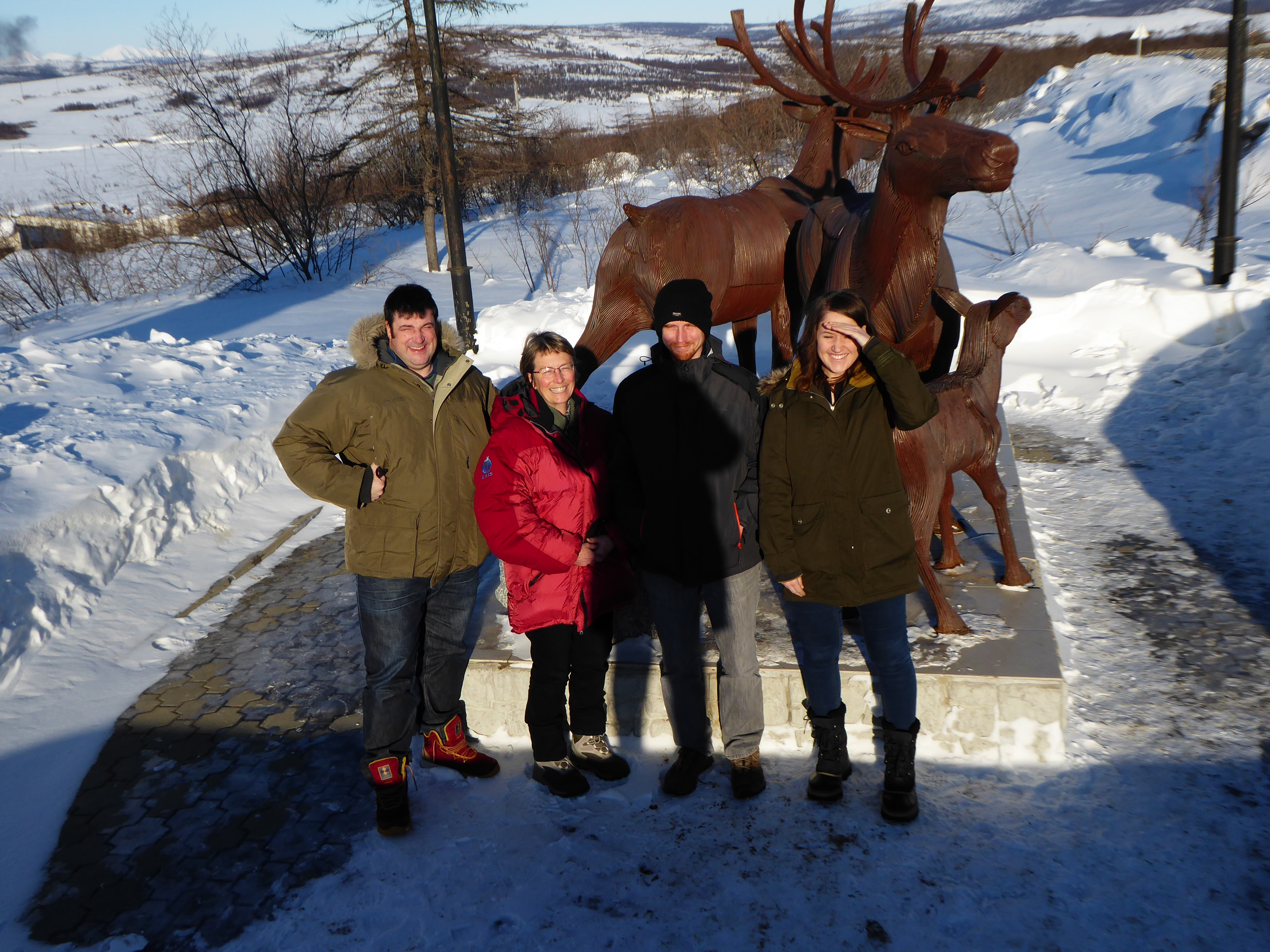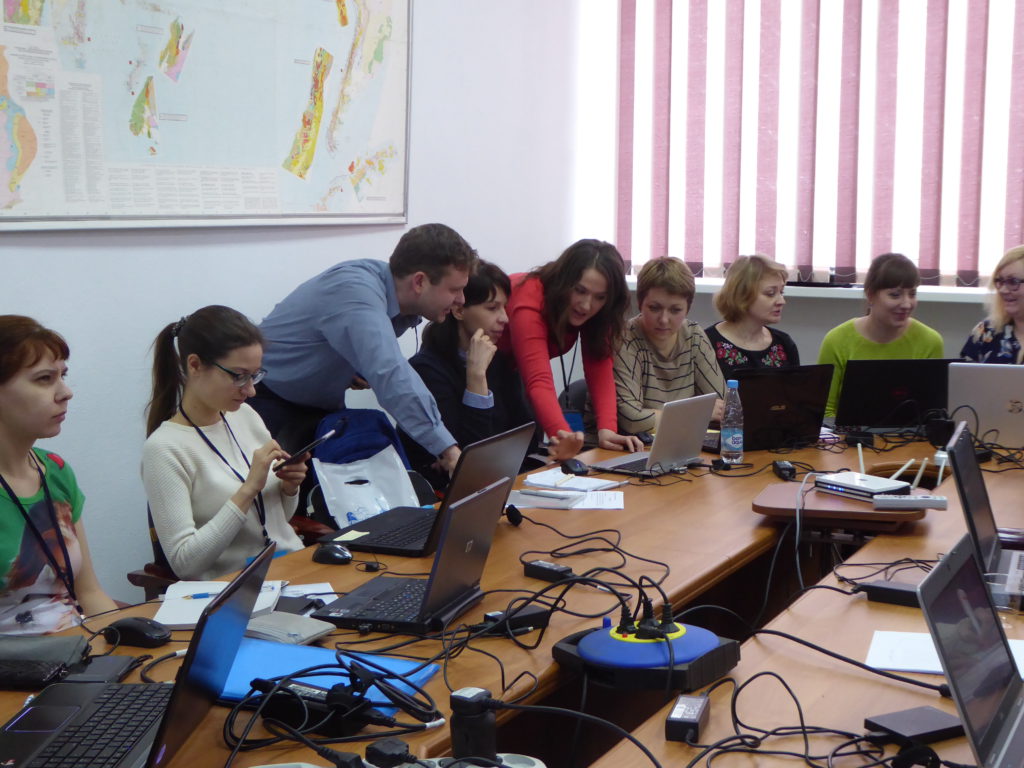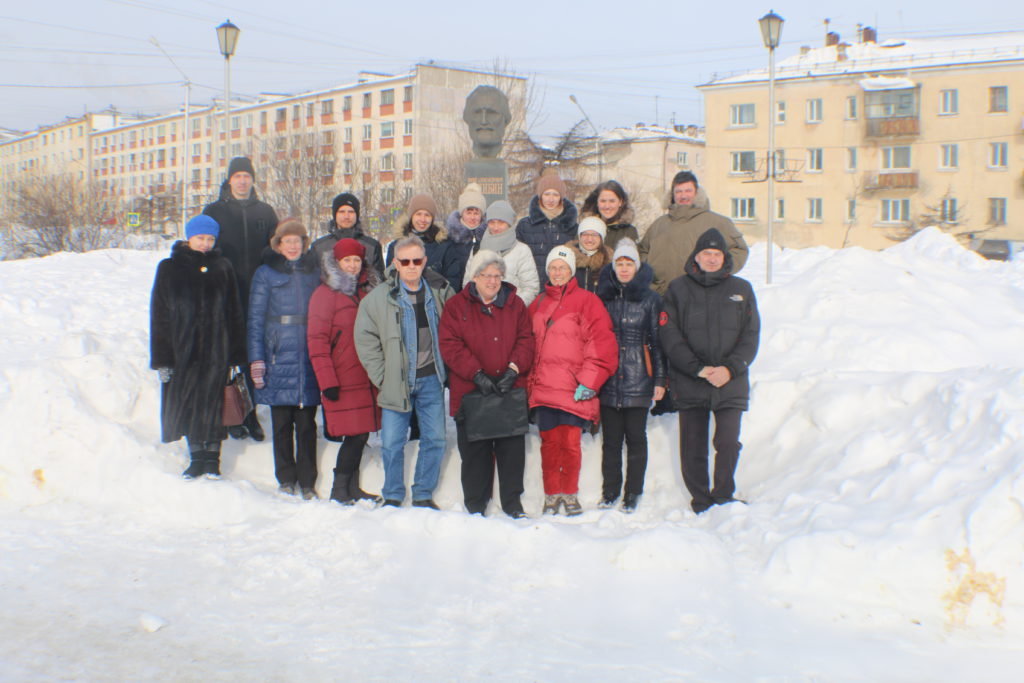Author: Professor Mary Edwards, University of Southampton
Siberia and the Russian Far East (SRFE) comprise a large proportion of all northern lands. The region is experiencing rapid climate warming, which means an important role in global climate processes, yet our understanding of environmental change here is limited. This is due in part to the difficulty of carrying out field studies and also to the fact that research centres in the region are few and widely scattered. A mix of stronger in-country linkages and international collaborations can move the science forward.

In March 2018, five UK scientists travelled to Magadan, in the Russian Far East, for a UK-Russia workshop on environmental change. The event was hosted by the North East Interdisciplinary Science Research Institute in Magadan, whose staff provided excellent support and great hospitality The Russian side featured scientists representing six scientific institutes across SRFE. The aim was to advance studies of long-term environmental change across the region and boost UK-Russia research collaboration on this subject. In addition to mapping potential avenues for joint work, we discussed new approaches that could be adopted in Russian laboratories, how to enhance international collaboration and how to develop joint research efforts across institutes. The workshop drew together 21 people in total and there was a strong presence of early-career researchers from both countries. The event was funded by the UK Science and Innovation Network in Russia (SIN Russia).
The workshop resulted in the formation of a UK-Siberia scientific working group: DIMA (Developing Innovative Multiproxy Analyses—in Siberia and the Russian Far East). The group has several goals:
– To develop a consortium of Russian environmental change laboratories that have strong links with UK researchers and can collaborate effectively on international projects
– To encourage more UK researchers to pursue opportunities in Siberia and the Russian Far East
– To create opportunities for scientific exchange and training between the UK and Russia.
In the short term, the group is planning several joint publications based on recent and archived research dataIn the longer term, we plan to initiate studies using both traditional and recently developed tools (such as molecular approaches) for describing long-term climate and environmental change.
A follow-up meeting will take place in Tomsk this September, supported through the FCO’s Global Britain Fund programme. In this workshop, we will focus on developing field and lab protocols for future joint work. There is also a plan to expand the Russian side of the network to new groups. The DIMA network will be linked with the recently established Siberian Environmental Change NETwork (SECNET), as the two groups share a major interest in environmental change, but with DIMA focussing on longer-term records. We anticipate opportunities for joint work between members of the two networks.

The DIMA group is open to any UK scientists interested in collaborating with Russian investigators on long-term environmental change in SRFE. Further information can be obtained from Professor Mary Edwards (m.e.edwards@soton.ac.uk) or Dr. Maarten van Hardenbroek (maarten.vanhardenbroek@newcastle.ac.uk).


